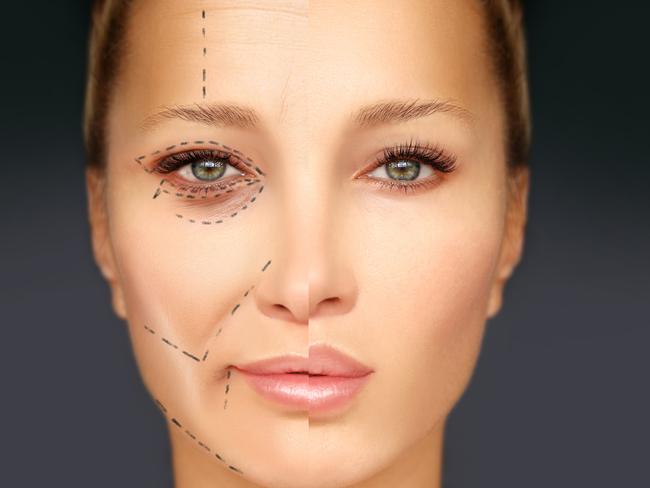How alcohol affects your body as you get older
Sure, your days of weekend benders might be over, but those reds before bed or Sunday schooners could set you back on the health front. Before you pour your next glass, find out how booze affects your insides as you get older.

There’s no denying Australians love a drink. But there’s only so much we can handle before our bodies start to suffer.
A 2016 National Drug Strategy Household Survey found men in their 40s and women in their 50s are the most likely to drink at a problematic level.
“Middle-aged people are more likely to drink three or more standard drinks a day,” says Geoff Munro of the Alcohol and Drug Foundation.
“This ups the risk of chronic alcohol-related diseases like cardiovascular disease, cancer and liver cirrhosis. These conditions are largely the result of regular, long-term drinking, and the risk increases with more than two standard drinks a day.”

The reason alcohol is linked to so many diseases is because it affects every bodily system. “As it’s carried via the bloodstream it enters every organ,” says Munro.
“One standard drink takes about an hour to be processed by the liver, so alcohol circulates in the body for a long time.”
It’s also harder to tolerate as you age, due to physiological changes, such as a decline in muscle mass and an increase in fat.
MORE FROM BODY+SOUL:
MAKING INTROVERT-EXTROVERT RELATIONSHIPS WORK
TOP 7 WELLNESS EXPERIENCES AROUND THE WORLD
Bad news, then, for those in their 60s, who are most likely to have more than five standard drinks on five or more nights per week, and those aged 70 and above — the group most likely to drink every day.
“An older adult who drinks the same amount as a younger person will likely have a higher blood alcohol concentration,” says accredited practising dietitian Joel Feren.
Read on to find out what else alcohol is doing to your body as the years rack up.
BRAIN
Ever heard that drinking kills your brain cells? It’s true, says Dr Christina Perry, research fellow at the Florey Institute of Neuroscience & Mental Health.
“Alcohol appears to cause an increase in neuro-inflammation in the brain, which has toxic effects,” she says.
“It can cause a cascade of cell death — and seems to be linked with particular parts of the brain: the hippocampus, which is important for learning and memory; the cerebellum, which is the balance centre; and the prefrontal cortex, which manages executive functions such as inhibitive control and decision-making.”
To lessen the risk, avoid binge-drinking (more than four standard drinks in a single session) and focus on a healthy lifestyle, says Perry.
“Keep active and eat properly. That seems to protect against the effects of alcohol.”

CANCER
Several cancers have been linked to alcohol, including mouth, stomach, bowel and breast cancers.
“It’s considered to be a likely direct carcinogen — that is, it causes changes in cell DNA,” explains Professor Sanchia Aranda, CEO of Cancer Council Australia.
“It’s also related to higher rates of recurrence in women who have had breast cancer already, so it’s got a secondary problem there, too.”
And the more you drink, the greater your risk.
“We suggest drinking within the National Health and Medicine Research Council guidelines — less than two standard drinks a day. And we also recommend some alcohol-free days every week,” Aranda says.
“The incidence of cancer increases with age, so it’s never a bad time to reduce your intake.”
STOMACH
If you’ve ever had a big night, you have likely experienced one of alcohol’s more immediate effects: nausea. Alcohol is a gut irritant that can reduce your body’s ability to absorb
nutrients from food and affect digestion by changing the balance of bacteria in your gut.
“There’s increasing evidence that long-term alcohol abuse can impact the gut microbiome,” says Feren.
“This can have a raft of health implications, including liver disease and inflammation.”
At 29kJ per gram, alcohol is almost as energy dense as fat, and as you age your metabolism naturally slows — the perfect recipe for weight gain. Where you store this fat matters: it’s likely to end up as visceral fat, the kind that surrounds your vital organs — also known as a beer belly.
“There is some evidence that moderate amounts of alcohol and binge-drinking can lead to an increase in visceral fat,” notes Feren.
“This can lead to heart disease and other nasties.” A sobering thought.

FACE
Alcohol isn’t as damaging to your looks as that hangover suggests.
“It certainly has a dehydrating effect on the body. This doesn’t cause a more aged appearance, though,” says Dr Deshan Sebaratnam, specialist dermatologist and senior lecturer at The University of New South Wales.
But if your alcohol intake has started to affect your liver, it’ll show.
“People who have advanced liver disease can develop widespread broken blood vessels, yellowing of the skin and nail abnormalities. These changes are associated with chronic alcohol intake, usually over years.”
Drinking can also exacerbate rosacea, where enlarged blood vessels cause red patches on the face that worsen over time, and may flare up inflammatory disorders such as eczema and psoriasis.
HEART
“Excessive drinking can weaken your heart muscle, increase blood pressure and lead to heart failure,” says Feren.
“In short, excessive alcohol is really bad for your ticker.”
But high intake isn’t the only problem.
“Research published in The Lancet in 2018 found people who drank any amount of alcohol had a higher risk of all types of stroke and heart failure through cardiac dysrhythmia, hypertensive disease, aortic aneurysm and sudden death,” says Munro.
“However, they also had a lower risk of myocardial infarction or heart attack. This means the mechanisms by which alcohol exerts effects on the cardiovascular system are more complex than previously thought.”
The bottom line? The study found that the threshold for low-risk drinking is 100g (or 10 standard drinks in Australia) per week — any more could shorten your life.

LIVER
More than six million Australians suffer chronic liver disease, with about 7000 deaths each year.
And while causes range from hepatitis C to obesity, alcohol is a major factor.
Because booze is broken down in the liver, this organ cops the full force of alcohol consumption.
“Anyone who drinks to excess runs the risk of developing fatty liver and cirrhosis of the liver,” says Feren.
The good news? The liver is capable of regenerating if you cut back alcohol or cut it out altogether.
“It’s never too late to stop drinking. It may not reverse damage, but it can improve the health of your liver.”
* For more info call the DrugInfo line on 1300 858 584.
IT’S NOT ALL BAD NEWS!
You can have a wine with dinner — just don’t down the bottle!
“Drinking a small amount of alcohol regularly may reduce your risk of developing dementia and depression,” says Feren. And when it comes to red or white, choose the darker drop.
“Red wine is considered an antioxidant, and antioxidants are considered to lower your risk of cancers,” says Aranda.
And moderation is key.
“Low to moderate use doesn’t seem to be too harmful,” says Perry.


